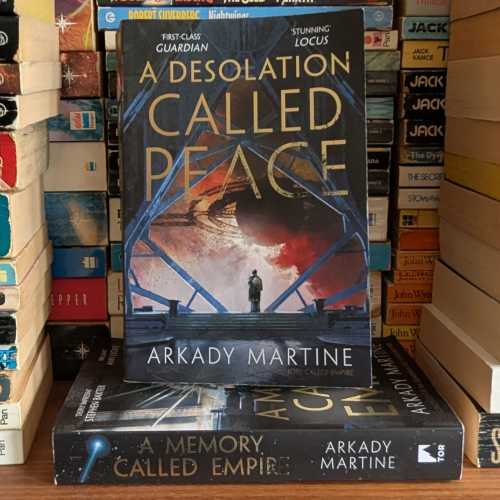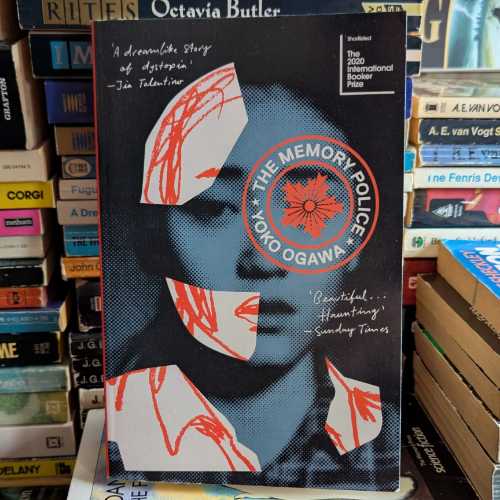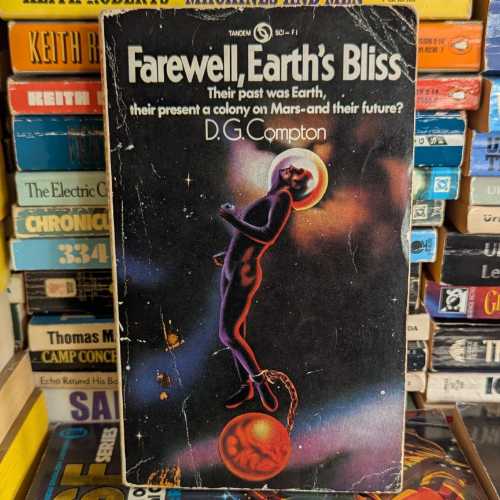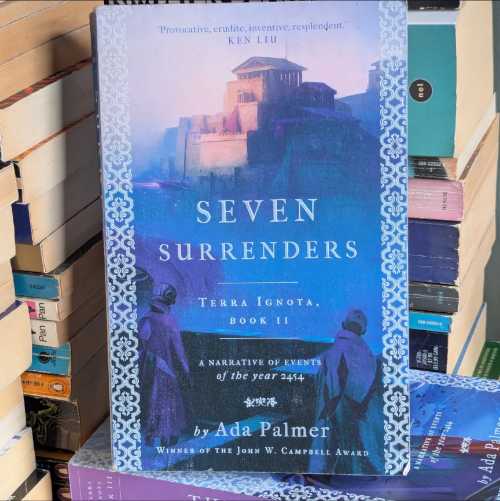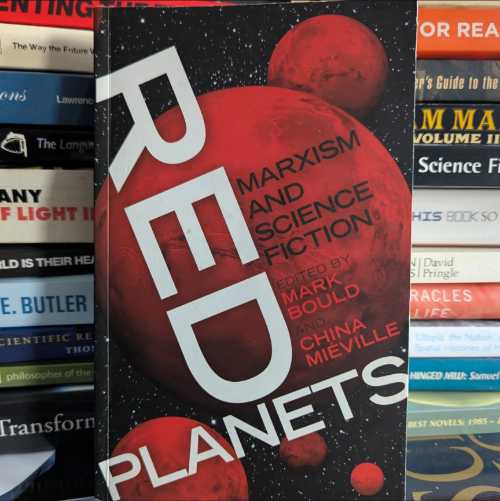The second part of the Teixcalaan duology sees Ambassador Mahit on the frontline with Envoy Three Seagrass as they attempt first contact to end a war.
Unlike its predecessor, which focused exclusively on Mahit, Desolation is told through four viewpoints. The first half of the book focuses on getting these characters into position, which, combined with Martine’s flowery prose (and love of the parenthetical expression), made for incremental pacing as we cycled the viewpoints.
However, there’s a lot of great character work woven through the story, in particular the developing relationship between Mahit and Three Seagrass and the struggle to bridge the cultural differences between them. I really enjoyed the perspective of the young emperor, Eight Antidote, though I would have increased his age to justify his articulate self-awareness.
Once at the frontline, the narrative picks up as our protagonists begin negotiations with the taciturn aliens. I liked that they trusted their intrinsic skills. Mahit and Three Seagrass were essentially winging it in a manner that reminded me of the first contact in Watt’s Blindsight. Success depends not on exhaustive analysis and scenario planning, but on getting the right people into play and empowering them. This unconventional (arguably a more feminine) approach also permeates Teixcalaan’s military - high autonomy held together through custom rather than command-and-control planning - a realistic model for colonial ambition over interstellar distances in the style of the East India Company.
Martine brings everything nicely together at the end, though I got a little whiplash from the rapid POV switching within scenes as she tried to weave in everyone’s perspective. This is a story about the clash of cultures - colonial, barbarian, alien. It’s about the challenge of understanding and the inadequacy of language. It pushes loyalty, ethics, and morality beyond black-and-white choices and leaves us unclear who’s in the right. We’re left with the question of what it means to be human in an era of technological collectives.
